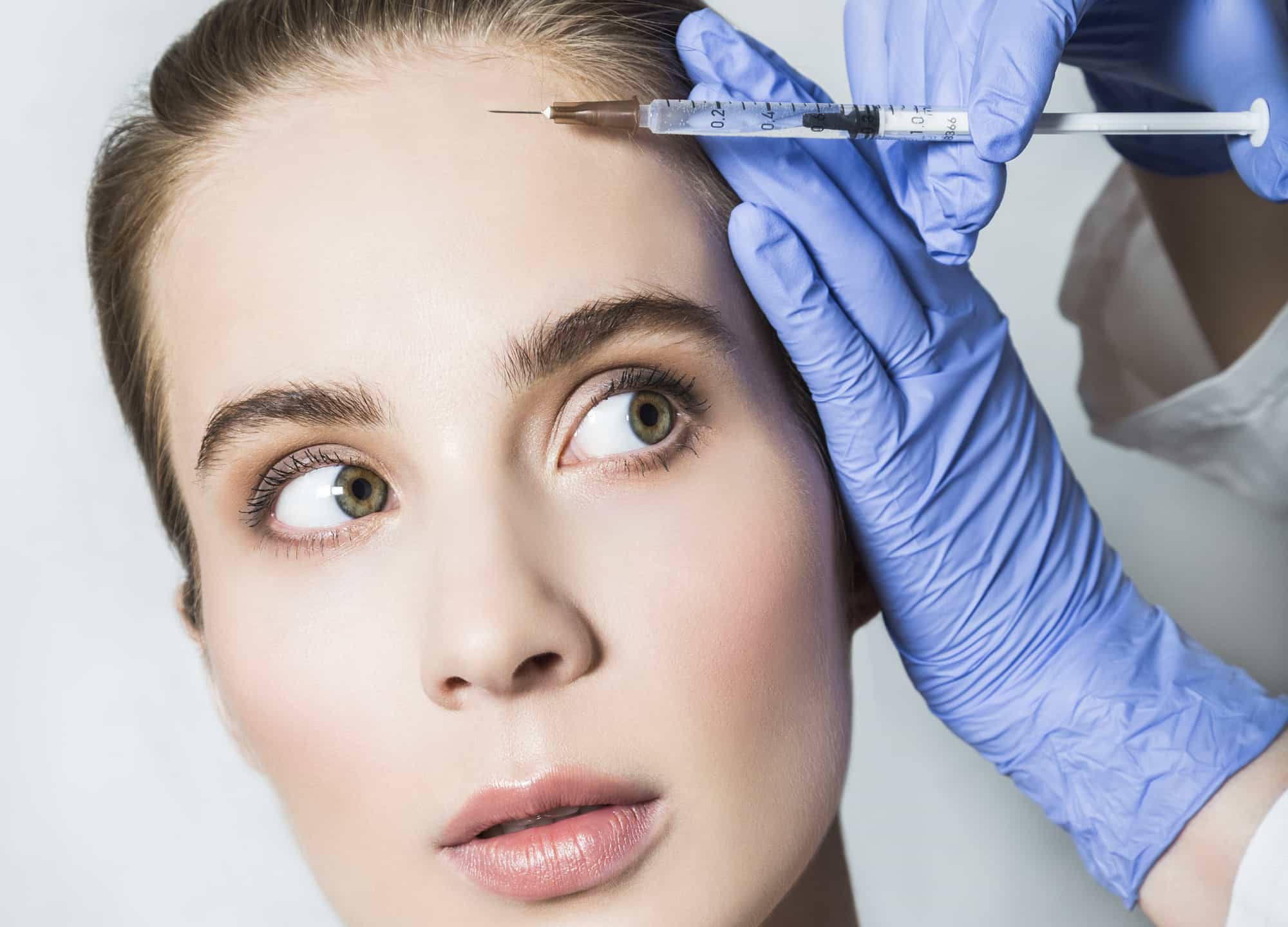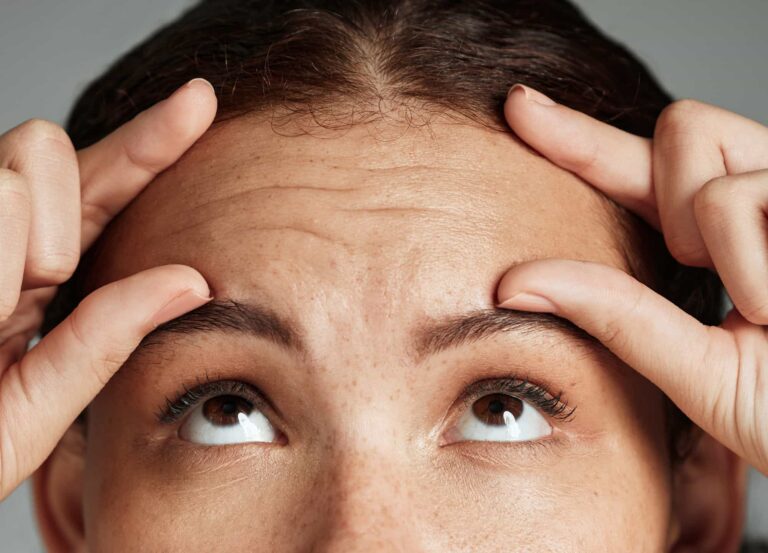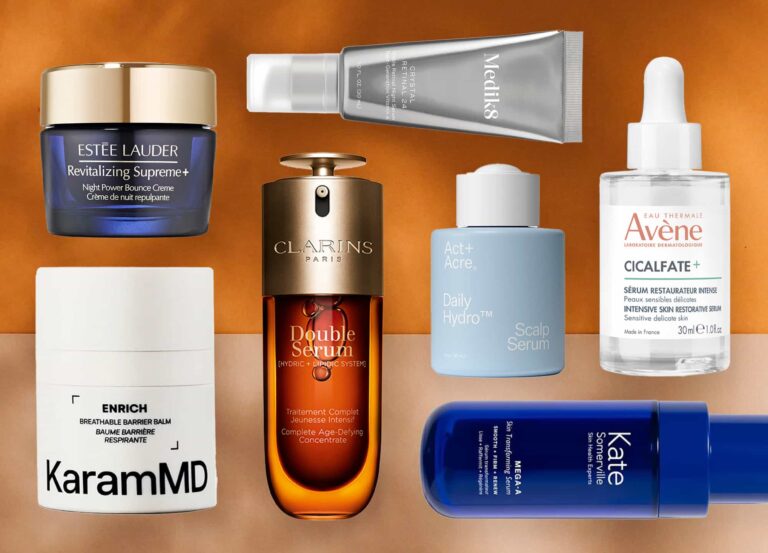Featured Experts
Dr. Evan Rieder, a double board-certified dermatologist and psychiatrist in New York City
Dr. David Shafer, a board-certified plastic surgeon in New York City
Dr. Kaveh Alizadeh, a board-certified plastic surgeon in Jericho, New York
Getting an aesthetic procedure can be a roller-coaster ride, even if it’s as simple as being treated with a neurotoxin. There’s always that mix of excitement and anticipation before and after the injections, which can make the brain spin with thoughts like I can’t wait for this treatment to kick in and I hope I’m getting enough units and Was that injection just a little too low on my forehead? Once the final results settle in, many report feeling a sense of confidence and well-being, which doesn’t come just from the satisfaction of a good aesthetic result. Clinical studies and individuals alike report that being treated with neurotoxins can actually have an effect on your mental health—and while the majority of evidence is overwhelmingly positive, there are some who claim that Botox injections have made them sick and depressed.
These cases aren’t easy to find, not at first glance. If you dig around our Community Forums, you’ll find examples of individuals experiencing a shift in mood after neurotoxins, including one who mentioned “depression that comes and goes,” and another with “disabling anxiety.” In online threads, you’ll see users inviting others to join a private Facebook group, where thousands of people are sharing their experiences with side effects they say were caused by neurotoxins. If you check the featured post in a public Facebook group on the same topic (directing others to the private group), it says, “If you have landed on this page because you have received botulinum toxin injections either recently or at some point in the past and have just not felt ‘normal’ ever since….or are experiencing a severe illness for which there is no other explanation….then you are possibly suffering from botulinum toxin side effects, or ‘botulism-like’ syndrome, or botulinum toxin poisoning.”
We turned to the experts and the scientific research to find out if there’s a connection between Botox and mental and physical health issues. Let’s jump in…
First, does Botox cause botulism?
Remember, all neurotoxins (regardless of the brand) are lab-purified drugs derived from Clostridium botulinum, a naturally occurring bacterium that can produce one of nature’s deadliest poisons, responsible for botulism. There are five different forms of this illness, with the three most common types being foodborne (from contaminated foods), wound (most frequently found amongst those who inject drugs like heroin), and infant (which is uncommon and happens for unknown reasons; the toxin forms sporadically in a baby’s GI tract). But there’s also the aforementioned IBP, or iatrogenic botulism poisoning, caused by the injection of too much neurotoxin for either cosmetic or medical reasons.
That’s scary, to be sure, but botulism is extremely rare—only about 110 cases are reported annually in the U.S.—and iatrogenic botulism poisoning is so unusual that it doesn’t even get a mention on the CDC’s epidemiology page.
However, there is still the tiny risk of getting botulism from treatments like Botox and Dysport, which is why all neurotoxin packaging has a black box warning, a label mandated by the U.S. Food and Drug Administration (FDA) that denotes the drug inside may have a serious safety risk. Botulism is a systemic illness that does what an injectable treatment does on a much larger scale: It paralyzes, which can start as weakening muscles, then evolve to blurry vision and trouble swallowing or breathing—and if the poisoning is severe enough, it can end your life.
But iatrogenic botulism poisoning is 33 times more likely to occur in patients who are being treated with therapeutic doses of a neurotoxin (for example, someone being treated with Botox for cervical dystonia), as the median therapeutic dose of neurotoxin is four times higher than the cosmetic dose. The risk of developing iatrogenic botulism is also greater if you’re seeing an unskilled provider, you have certain health concerns or allergies, or the product you’re being treated with is counterfeit.
Is depression a side effect of Botox?
When it comes to FDA-approved drugs, a brand has to disclose, on the packaging, every single side effect reported by its product’s users. Neurotoxins come with a laundry list of potential side effects—but all drugs do. “I always tell people, if they ever read the fine print on the side effects of aspirin or Tylenol, no one would ever take these medications,” quips Dr. Evan Rieder, who is one of just three MDs nationwide to hold board certification in both dermatology and psychiatry.
However, depression is not a side effect of botulism, though respiratory depression is. It’s not really a side effect of neurotoxin treatment either. We checked the labels of all the FDA-approved brands; the only place we found depression was among the side effects written up in the official package leaflet for Botox and all its official treatment uses, in patient populations that have been injected in the hand or wrist after a stroke—and it’s uncommon even in that scenario.
If you want to take a deeper look at how many people are self-reporting that neurotoxins made them depressed, you can play around with the FDA Adverse Event Reporting System Publish Dashboard. Adverse events are “undesirable outcomes” connected to a drug; this platform allows you to research drugs and side effects reported by consumers. The tool has some limitations, including duplicate and incomplete information, but it does serve as a good jumping-off point. We looked at the five FDA-approved neurotoxins as a whole (Botox, Daxxify, Dysport, Xeomin, and Jeuveau), and as of this article’s publication date, a total of 36,548 adverse events were reported for neurotoxins from 1993 until the present date. And of all those, 217 (0.59%) were for depression. Compare this to the most commonly reported adverse event: more than 8,500 people—around 23%—claiming that the drug did not work.
When you consider that neurotoxin injections made up one-third of the 13.3 million minimally invasive aesthetic procedures in 2020, you can say that 200 or so depressed individuals over about 30 years of neurotoxin treatment is statistically insignificant, though that’s admittedly not very compassionate.
Why does Botox make me depressed?
There could be a few factors at play here, with the first being simple: correlation does not imply causation. Pharmaceutical brands must disclose adverse events to the FDA; if a drug is being studied, subjects’ experiences are shared in the results. “You could get hit by a car and then have to report it because you were part of a study,” says New York City board-certified plastic surgeon Dr. David Shafer. “[With depression and neurotoxin,] I think it’s more circumstantial than cause and effect.”
What may also play a role is the facial feedback hypothesis, posed by Charles Darwin in 1896. “The philosophy was that there was a connection between the muscles in the face and what’s going on in our central nervous system,” Dr. Rieder explains. “This happens through the peripheral nerves that are actually going into the muscles of expression, like in the glabellar lines and forehead, and then feeding back on the nerves into the brain.” When you’re treated with a neurotoxin, you can’t make facial expressions the same way (or at all, depending on your goal and/or injector). Adds Dr. Rieder, “A lot of people ‘smize,’ or smile with their eyes, so if you knock out the movement of the muscles around the eyes, it makes sense to me why you would have less perception of happiness internally—even if that was the emotion your body was naturally set up to feel.”
An interesting study of women supports this; the study evaluates women who had been treated with neurotoxins and its potential effects of facial feedback on mood. The findings report that women who had been treated in their crow’s-feet experienced a drop in mood. However, the study was very small and not performed as scientifically as it could have been. “The study does not create controls and is not blinded to participants, which makes it less scientific,” explains Jericho, New York–based board-certified plastic surgeon Dr. Kaveh Alizadeh.
The study also evaluated the seemingly negative effects of neurotoxin treatment on sexual satisfaction. It reported that those who had been treated in their frown lines were unable to make the faces associated with orgasm and had thus had trouble achieving orgasm—and when they did, it was less satisfying. However, “the end point of sexual function is based on a questionnaire and doesn’t control for other variables, like the sexual partner’s responses and any lifestyle changes that could lead to decrease in sexual function,” points out Dr. Alizadeh. “They make a claim that the women in the study have less orgasms due to Botox, but there is no direct support for this evidence.”
Why do I feel happier after getting Botox?
There is much more research out there showing that neurotoxins can actually improve mental health. There were positive findings from a German study on the effects of Merz Bocouture (Xeomin, in the United States) on modulating emotional expression in those with borderline personality disorder as well as from case studies of patients with treatment-resistant social anxiety disorder who had been injected with neurotoxin. Most notably, Allergan, the maker of Botox, completed a phase II clinical trial of Botox injections as a treatment of major depressive disorder (MDD) a few years ago. A phase II trial evaluates the efficacy of a drug on a disease—in this case, using 255 participants; the results of this trial were considered “clinically relevant” and “may represent a novel treatment option” for MDD.
For the studies of all three mental health conditions, neurotoxin was injected into the glabella, or between the brows. This area helps us make faces of concern, worry, sadness, or anger—apply the facial feedback hypothesis here and, along with the “elevens” lines, those emotions get softened by Botox. “I’ve been injecting neurotoxins for almost 20 years now, and I have patients say that when they get treated, not only do they look better, but they feel better,” reports Dr. Shafer. “I think part of it is interfering with that cycle—if you can’t frown as much when somebody says something sad, there’s less negative feedback to the brain.”
However, Dr. Shafer shared another thought, echoed in an article in Toxins theorizing that possible boosts to self-esteem, self-image, and social interactions could also be responsible for uplifted mood after Botox injections. “We make judgments about people based on their expressions, and we have subconscious feedback mechanisms in our brain,” he points out. “The way you emote to other people will affect the way they respond to you, which will then affect the way you feel about that interaction.”
This is not to say that neurotoxins are a silver bullet for mental health though. “There was some interesting data looking at people with recalcitrant depression who had failed a lot of other treatments—and they do feel better with Botox,” says Dr. Rieder. “But the data isn’t universal—I have seen patients who have wanted to have Botox to see if it could help with depression, people who didn’t respond to anything else, and some responded well and some did not.”
Bottom Line
The adage “When you look good, you feel good” rings true—the profits associated with the beauty and aesthetics industries are proof—but the converse can also be spot on. Dr. Alizadeh shares that he’s seen patients who thought neurotoxins weren’t for them simply because they had been treated incorrectly, “For example, they get it done and their brows drop, which makes them look fatigued—and that’ll make you feel depressed, because now you look like a sad puppy,” he says. “Unfortunately, people think it’s the fault of the neurotoxins, but it was really the fault of the provider who did it the wrong way.” Similarly, being fully “frozen” with a neurotoxin could make you feel emotionally flat; an unnatural-looking outcome could negatively affect others’ perception and treatment of you, which could take a toll on your self-esteem and your mental health.
Being treated by a skilled injector with a profound understanding of facial anatomy will go a long way toward achieving a positive outcome, which could certainly help you look and feel your best. And though you shouldn’t expect a miracle from a few units of neurotoxin, you also shouldn’t let a few anecdotes about a lower mood inhibit you from trying them yourself. Not a single doctor mentioned in this article has had a patient report feeling depressed after neurotoxin treatment. Rather, their patients look forward to it—to a significant degree.











